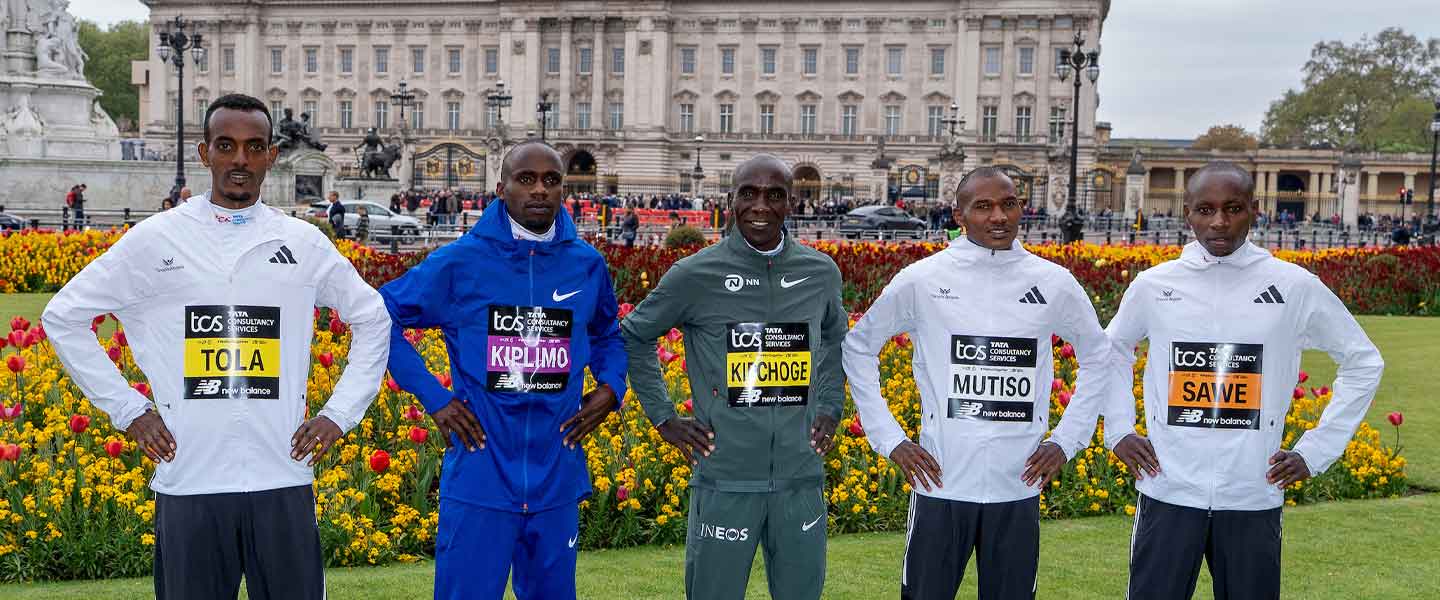
The question on many runners’ lips following the postponement of Boston, London and a whole host of other marathons scheduled for this spring was: “What now?”
A number of runners were either approaching or completing the final long run weekends of their training, lots of them with weeks and months and hundreds of miles already banked in preparation.
With the opportunity for many of you to race moved further along the 2020 calendar, it can be difficult to grasp how to approach this unexpected down period.
So we asked sports rehabilitation therapist James Dunne of Kinetic Revolution what runners can do now before they begin to think about planning to peak for those rescheduled autumn races.
Here are his top five tips.
1. Overall health is priority No. 1
“While the obvious temptation is to keep training hard in an effort to maintain the fitness your marathon training has built, now is a time to prioritize overall health.
“Cardiovascular fitness is of course an important part of the bigger picture when it comes to remaining healthy.
“However, marathon training by its very nature pushes runners like you and I close to the edge in terms of placing stress on the immune system. It’s no coincidence that runners sometimes pick up colds in peak training weeks and into their pre-race taper.
“Take comfort in the knowledge that you’ll quickly be able to regain any lost fitness as you scale back on the training load you’re placing on your body.
“Scaling back your training load will allow you to maintain a good degree of cardiovascular fitness while not compromising your immune system.”
2. How to scale back training
“A simple rule of thumb to follow during this period of reduced training load is to avoid particularly long runs or intensive workouts, and to focus on maintaining your frequency of runs per week and maintaining a consistent - albeit reduced - weekly mileage.
“As most seasoned marathon runners will appreciate, consistency of training outranks most other factors!
“Sensible advice is to focus on ‘restorative exercise’. However, I’m often asked what that means exactly! Simply put, you can consider activities that leave you feeling energized rather than wiped-out as falling into this category. We all know the feeling of a mid-week easy run that transforms an otherwise lousy day into a great day!”
3. What areas should you focus on outside of running?
Now is a great time for activities such as Pilates, yoga, and your injury prevention exercises. Yep - those long-forgotten drills the physio gave you!
Even if you’re not nursing an injury at the moment, your longer-term running will benefit from a renewed focus on strengthening your core muscles, glutes, and legs in general. There are lots of bodyweight exercises you can do in your living room. YouTube is a goldmine for exercise inspiration!
4. How much mileage/how many sessions should you keep on the calendar?
“Assuming you’re not showing symptoms of illness, and don’t have to self-isolate. I would suggest trying to maintain your usual weekly running frequency, but also listening to your body and not forcing a run if you feel under the weather.
“The aspects of your training I would adapt are both volume (mileage) and intensity.
“Consider dropping your weekly mileage by 25 to 40 per cent, capping your long runs to approximately two hours, and steering away from any particularly intense running workouts.
“For most of us, our best marathon finish times come as a result of consistently building the aerobic engine, not from that magic interval workout!”
5. Should you be worried if your fitness drops off over the coming weeks and months?
“In this time of uncertainty and inevitable stress, we need to protect our mental health as much as our physical fitness. Some may disagree with me on this, and that’s fine, but there’s no shame in letting your fitness drop as your training takes a backseat to looking after loved ones, businesses, etc…
“I’m a firm believer that once you’ve discovered the joy of running, it’ll always be with you. However, I also believe that for most of us, running motivation ebbs and flows throughout the chapters of our lives.
“There’ll be other marathons, and you’ll be ready!”
Other news

Episode 68: Meet The Man Responsible For The Greatest Marathon Field We’ve Ever Seen






